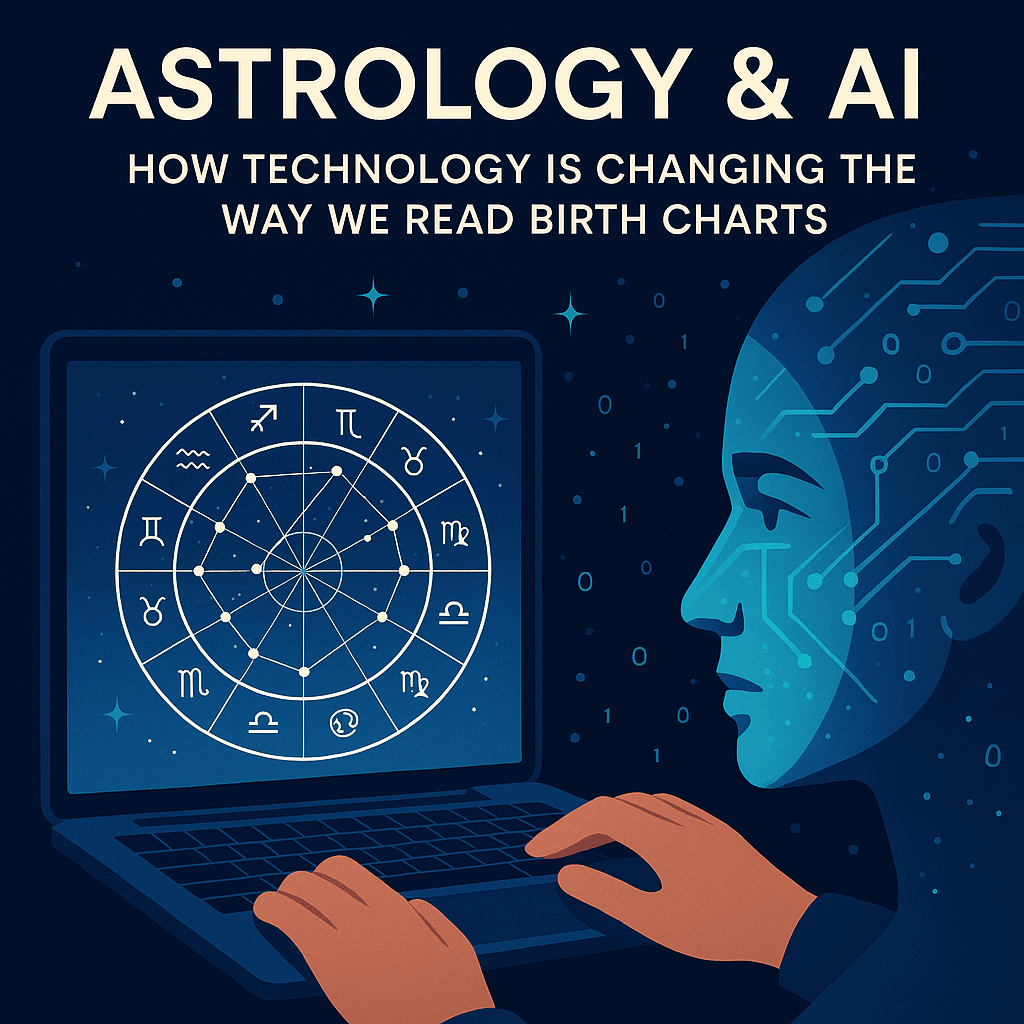Astrology & AI: How Technology is Changing the Way We Read Birth Charts
In the digital age, ancient practices are undergoing a dramatic transformation. One of the most fascinating examples of this fusion of old and new is astrology—a tradition rooted in the stars that is now being reshaped by artificial intelligence (AI). From customized horoscopes to automated birth chart readings, AI is revolutionizing the way we understand and interact with astrology. But how exactly is technology changing the way we read birth charts, and what does this mean for the future of the cosmic arts?
The Traditional Art of Birth Chart Reading
For centuries, astrologers have manually cast birth charts using an individual’s date, time, and place of birth. A birth chart, or natal chart, maps the position of celestial bodies at the exact moment of someone’s birth. It serves as a blueprint of one’s personality, potential life path, and emotional tendencies. Traditional astrologers study planetary placements, houses, aspects, and transits to offer insight.
This process requires a deep understanding of astronomical data and symbolic interpretation. In the past, creating a chart meant complicated mathematical calculations and painstaking sky observations. With the advent of software, these tasks became easier—but AI has taken things to an entirely new level.
Enter Artificial Intelligence: The Rise of Smart Astrology
Artificial intelligence thrives on patterns, data, and predictive models. Coincidentally, so does astrology. This natural synergy has given birth to a new era of smart astrology, where machines can generate in-depth interpretations in seconds—no human astrologer required.
Modern AI-driven astrology apps and platforms now use massive datasets, machine learning, and natural language processing to read birth charts and offer personalized insights. They can analyze millions of chart combinations, learning from user behavior and feedback to improve their accuracy over time.
Some key ways AI is transforming birth chart readings include:
Automated Chart Calculations
AI-powered tools can instantly generate precise natal charts based on input data. No more waiting for an astrologer to draw up a chart—what once took hours now happens in real time, with flawless mathematical precision.
Personalized Interpretations
Through machine learning, AI systems can generate custom readings based on nuanced combinations of planetary positions. Unlike generic horoscopes, these interpretations adapt to individual chart configurations, life stages, and even emotional states, offering a level of personalization that rivals human astrologers
Predictive Astrology & Big Data
AI can analyze massive datasets of planetary transits, historical events, and life patterns to offer predictive insights. While traditional astrologers rely on intuition and symbolic reasoning, AI enhances this by providing data-backed forecasts, identifying statistical correlations that might go unnoticed by the human eye.
Voice Assistants and AI Chatbots
AI chatbots can now answer astrology-related questions 24/7. Some platforms allow users to chat with an “AI astrologer” that mimics real-time conversations, offering quick answers about compatibility, upcoming transits, or birth chart details.
Astrology Meets Psychometrics
Some platforms blend astrology with psychological profiling. By analyzing both a user’s birth chart and online behavior (such as tone, choices, or preferences), AI can create a hybrid psychological-astrological profile. This opens up new applications in career counseling, dating, and mental wellness.
The Pros and Cons of AI in Astrology
Like any technological advancement, AI in astrology has its pros and cons.
Pros:
Accessibility: More people can access personalized astrology without needing an expert.
Speed: Instant insights and real-time reports.
Customization: Hyper-personal readings based on vast data models.
Consistency: Objective and consistent interpretations.
Cons:
Loss of Human Intuition: Astrology is as much an art as a science. AI lacks emotional nuance and cultural context that human astrologers bring to readings.
Over-Reliance on Technology: People may treat AI-generated readings as definitive, losing touch with the symbolic and interpretive nature of astrology.
Privacy Concerns: As with any data-driven system, users may face concerns about how their birth and behavioral data is stored and used.
The Future: Hybrid Models of Astrological Guidance
As AI continues to evolve, the future of astrology may lie in human-AI collaboration. Rather than replacing astrologers, AI could become a powerful assistant—handling data-heavy tasks while the astrologer focuses on interpretation, empathy, and spiritual guidance.
Some platforms already offer dual readings: an AI-generated analysis followed by a live consultation with a human astrologer who adds emotional and cultural depth. This hybrid approach could offer the best of both worlds—precision and personalization, backed by intuition and wisdom.
Conclusion: Stars, Software, and the Soul
Astrology is not just about planets and patterns—it’s about meaning. As AI reshapes the way we read birth charts, it’s essential to remember that behind every algorithm is a human seeking connection, understanding, and self-awareness.
The integration of astrology and AI is a sign of the times—where ancient wisdom meets digital innovation. Whether you’re a skeptic, a seeker, or somewhere in between, one thing is clear: the stars have gone high-tech, and the universe is now just a tap away.
FAQs
- Can AI replace human astrologers?
While AI can quickly analyze complex charts and offer interpretations, it lacks the emotional intelligence, cultural sensitivity, and intuitive insight of a human astrologer. The future likely involves collaboration rather than replacement. - Are AI-generated birth chart readings accurate?
Yes, AI-generated readings are often highly accurate in terms of calculations and basic interpretations. However, their emotional and spiritual relevance can vary depending on the platform and the data it uses. - What are the best AI astrology apps in 2025?
Popular apps include Co-Star, The Pattern, TimePassages, and Chani. Many of these use AI and machine learning to deliver hyper-personalized content based on your natal chart. - How does AI personalize astrology readings?
AI uses your birth data (date, time, place) and behavioral data (like app interactions) to identify patterns and offer customized insights that evolve over time. - Is it safe to share my birth data with astrology apps?
It depends on the app’s privacy policy. Always check how your data is stored and whether it’s shared with third parties before using any digital astrology service.
